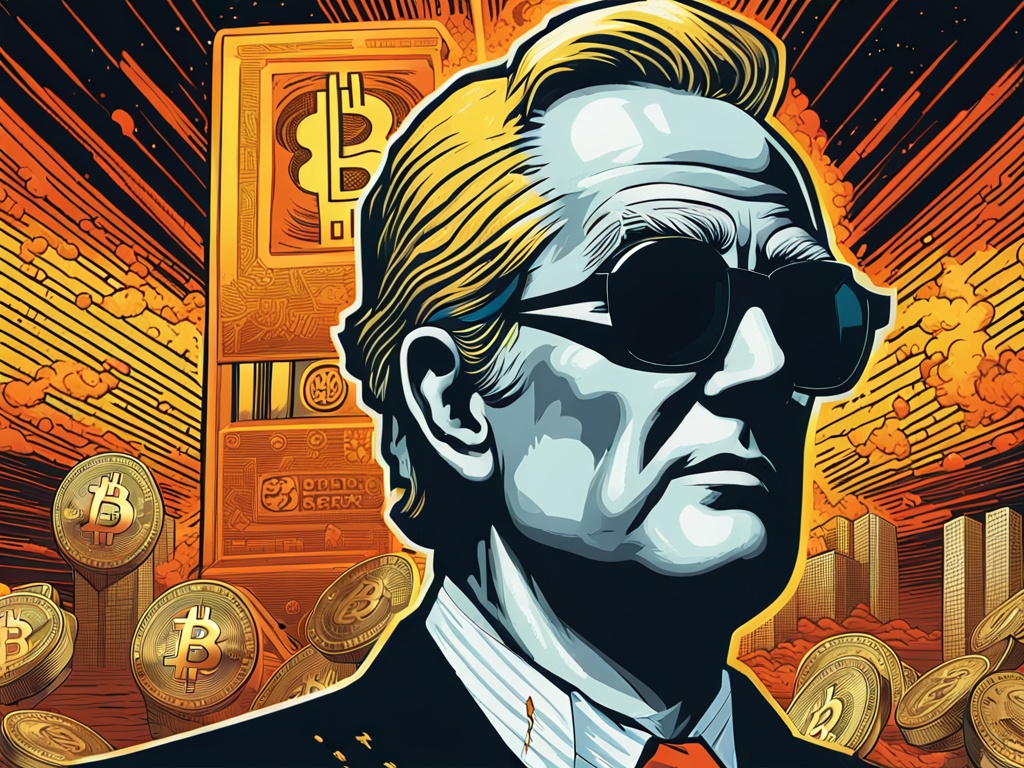Could Bitcoin Be the US Dollar’s Worst Nightmare?
Hey there! So today, let’s dive a bit into this debate about Bitcoin and its potential impact on the US dollar, particularly around what some economists think might happen if the government decides to really get involved in the crypto world. You might be wondering why this even matters, right? Well, as a young Korean American crypto analyst, I see it as incredibly important for both our wallets and the broader economy. Let’s break it down!
Key Takeaways
- Government Intervention: Experts like Peter Schiff suggest that any significant government intervention in Bitcoin could lead to inflation and an economic bubble.
- Inflation Concerns: If the US starts buying Bitcoin with newly printed dollars, it might inflate the money supply, hurting the value of the dollar.
- Market Manipulation Accusations: Some believe that the recent surge of Bitcoin, surpassing $100k, is influenced more by political lobbying and government support than actual market demand.
- National Bitcoin Reserve: Proposals for a national Bitcoin reserve could destabilize the dollar and diminish its global dominance.
The Current Climate of Cryptocurrency
Let me tell you, the tone in the crypto market has been electric lately, with Bitcoin hitting all-time highs. People are buzzing about it. But then, you have experts like Peter Schiff, who’s been pretty vocal about his bearish views, warning that if the government backs Bitcoin too heavily, it could have some pretty wild consequences.
Inflation and Economic Bubbles
Think of it this way: if the government were to pump a whole bunch of cash into Bitcoin, theoretically speaking, that newly created currency could inflate the money supply. Schiff argues this could make the dollar weaker, which is kind of a big deal. Imagine going to buy your favorite street food and realizing it costs a lot more than it did a few months ago. Not fun, right?
- Money Supply: The idea here is straightforward: more money in circulation means that the value of each dollar could drop. Simply put, if everyone has cash burning a hole in their pocket, prices go up.
- Investor Confidence: If investors start to lose faith in the dollar because they see the government meddling in the Bitcoin space, they might stack their assets in crypto instead. That could lead to a massive shift away from traditional currencies!
The Role of Political Lobbying
Now, let’s talk about this idea that Bitcoin’s rise to heights like $100k could be less about market demand and more about political maneuvering. It’s a bold claim, but Schiff seems to think it’s true.
- Skepticism: He argues that real market forces couldn’t push Bitcoin to those levels without some serious backing from power players. It’s like if your favorite sports team suddenly got tons of funding from a mysterious sponsor. Sure, they become better, but is it really organic talent, or just money talking?
In a way, it’s kind of absurd. We all want to think Bitcoin is this grassroots movement of the people, but what if, behind the scenes, it’s more like a game of Monopoly?
A National Bitcoin Reserve? Not So Fast!
Imagine your government proposing to create a national reserve for Bitcoin. Sounds like a futuristic dream, right? But Schiff doesn’t pull any punches on this one. He believes that this could be a huge mistake. Let’s think about what might happen if they actually go through with it:
- Draining Resources: To build this reserve, the government would likely need to buy Bitcoin en masse. Schiff even hints that they might have to sell off gold reserves to fund these purchases—yikes!
- Market Stability: There’s a risk that such a move would make Bitcoin appear more viable than the US dollar. It could be like saying, “Hey, this new thing is better than the long-trusted asset you’ve always known.” It could seriously erode the dollar’s position as the global reserve currency.
Final Thoughts and What You Can Do
So, how do we, as potential investors and crypto enthusiasts, process all of this? Here’s where I think it’s crucial to lean into a balanced perspective:
- Stay Informed: Keep an eye on how the government interacts with the crypto space. Capital flows can shift in a heartbeat.
- Diversify: Don’t put all your eggs in one basket. Whether that basket is Bitcoin, stocks, or something else, diversification is key to protecting yourself in volatile markets.
- Watch for Signals: Look out for any signs of regulatory changes or major financial moves by the government that could affect currency values.
In conclusion, while Bitcoin is gaining momentum and catching the eyes of many, it’s also stirring plenty of concerns about the stability of the dollar. It’s a fascinating yet scary time in the financial world.
So, here’s a question to ponder: If the US government really starts to embrace Bitcoin, do you think it’ll help or hurt the economy in the long run?




 By
By
 By
By
 By
By

 By
By
 By
By